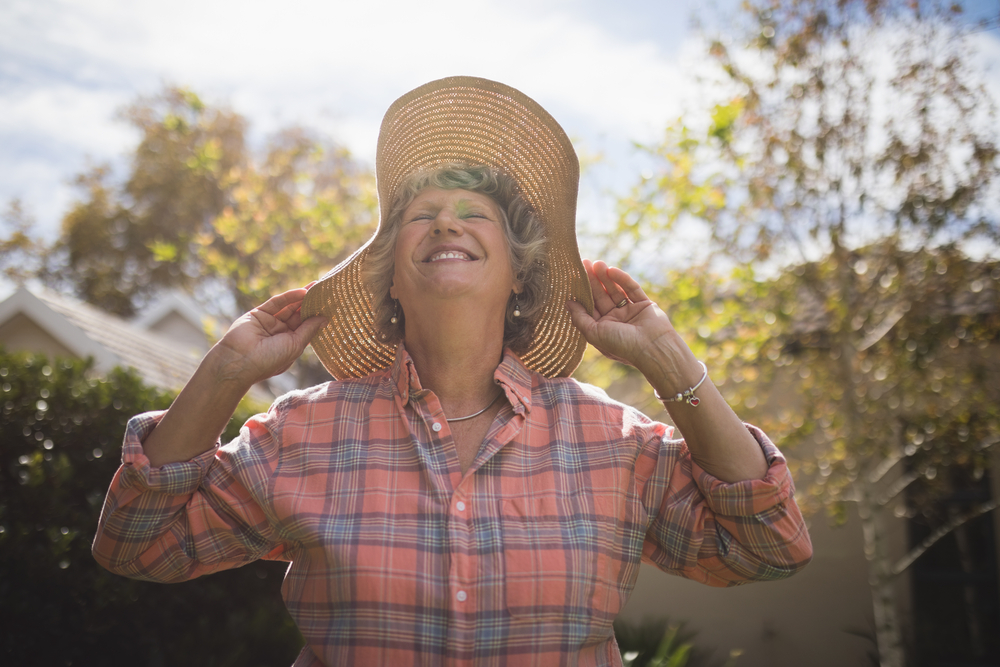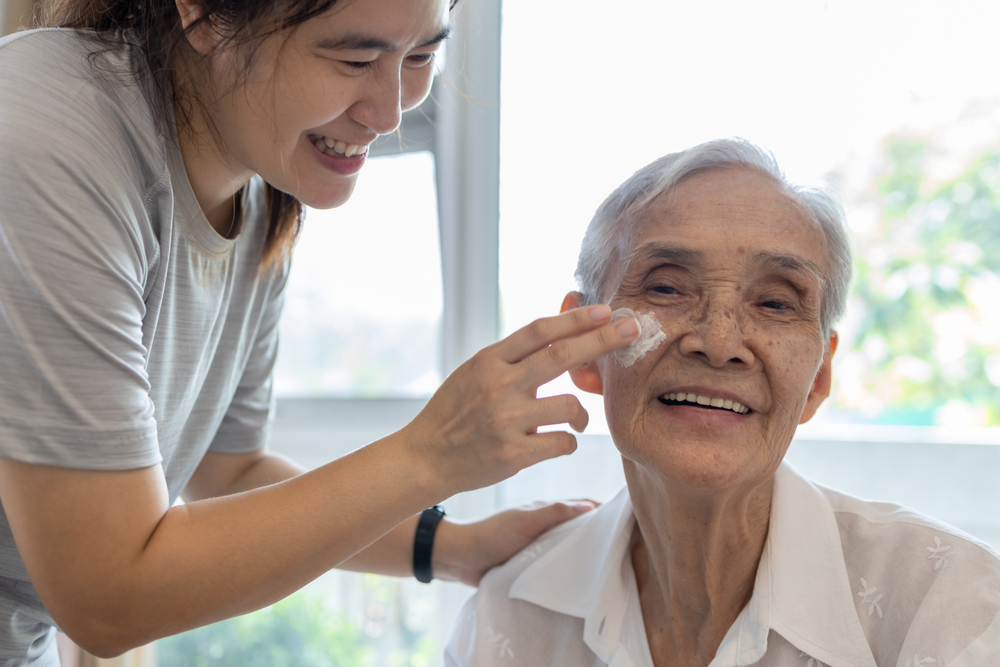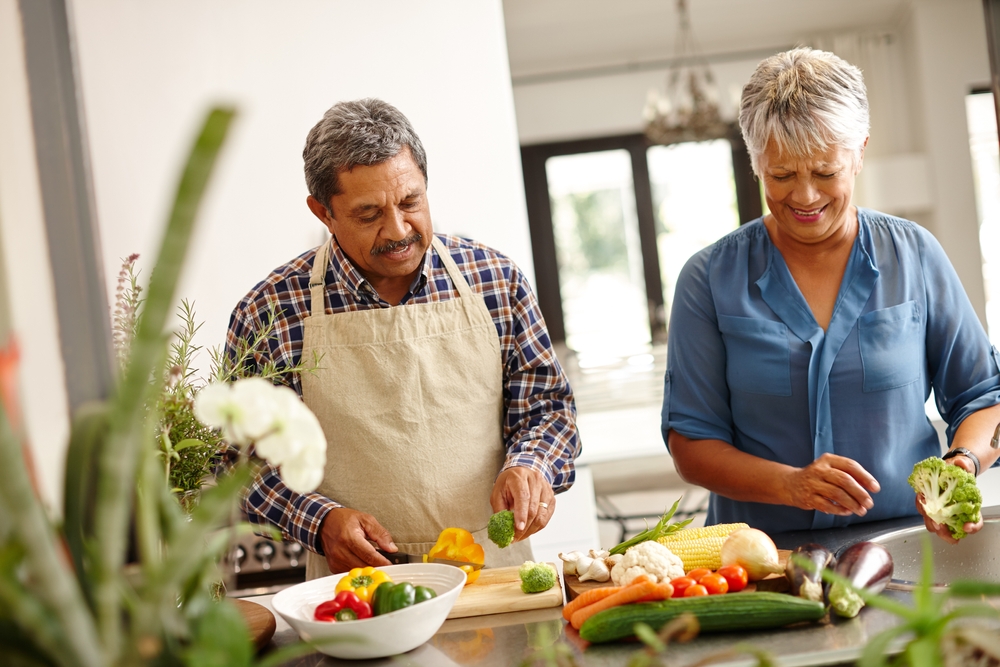 July 19, 2023
July 19, 2023
As summer peaks, the biggest concern for our senior loved ones centers on the heat and humidity levels. We still want to go outside and enjoy the fresh air, but not being aware of the weather could do more harm than good to our loved one’s health.
We can enjoy the outside in many ways while being aware of how the heat affects our senior family members. The heat can affect someone because of their age or the medications they take, and sometimes it’s a combination of both.
Heat Doesn’t Have to Prevent Fun
Young and middle-aged individuals can withstand heat upwards of 85-90°F. Even then, it’s essential for them to be aware of the signals their body is producing to remain healthy and alert. For seniors, when the heat gets above 80°F, they need to be proactive about the actions they take while outside.
It’s vitally important for seniors and their families/caregivers to be aware of what will keep them safe during the hottest summer days. Health concerns increase almost tenfold whenever the heat rises above average temperatures. Follow these simple steps, and your senior will have a fun summer with you and your family.
Stay Hydrated
Extreme heat can dehydrate just about anyone, especially our elderly loved ones. Keeping a water bottle on hand whenever you venture outside is the difference between a simple adventure and a potential health risk.
If you plan to be outside for longer than a short spurt – i.e., outside activity vs. a quick trip to do some errands – make sure you have multiple water bottle options. Keeping the water cold is also helpful, so if possible, make sure the water bottles have ice in them.
You can never have too much water on hand. Like your mother probably told you growing up, it’s better to have and not need than to need and not have.
Be Aware of Medication Side Effects
Even when doing everything right to remain safe during hot summer months, seniors could still be hospitalized. This could be due to them forgetting about their medications and how they interact with warm weather.
Some medications can cause people to become more dehydrated, especially when the heat index increases as it does in the summer. Being aware of side effects works hand in hand with the previous tip. Always keep water on hand to ensure your loved one’s health stays at its best.
Another significant effect to be aware of with medications is heat intolerance. Some drugs make it hard for your body to cool down or maintain comfortable body heat. This can be exacerbated when the weather outside gets hotter.
Awareness of these effects is extremely important to ensure your loved one stays out of emergent medical situations.
Dress Lightly
Older individuals have a more challenging time regulating their body temperatures, especially if they are on certain medications. You should always be prepared by dressing them lighter for hotter weather.
It also can’t hurt to have multiple outfits on hand if you plan to be outside for an extended period. This way, if they sweat through their clothes or you need to put water on them to cool them down, there is a second set of clothes they can change into.
Proper clothing items range from short sleeve cotton shirts to tank tops and thin, airy shorts that allow the body to breathe a bit and keep the individual cooled down as much as possible. If possible, limit the layers of clothing to avoid your loved one’s overheating or sweating too much.
Avoid Direct, Extended Sun Exposure
There are many fun activities to participate in during the summer. These can range from swimming, picnics, and outdoor BBQs to concerts, park activities, and more.
Awareness of how long outdoor activities are is vital to ensuring your senior doesn’t spend an extended time in direct sunlight. You can still participate in these activities. You just need to be prepared to keep your loved ones in the shade as often as possible.
If the area you are going to doesn’t have plenty of natural shade – i.e., trees or covered tables/benches – you need to bring tools to create shade. These tools can be something as simple as an umbrella or as complex as a shade tent to set up over their seating option.
Whatever you decide to do, limiting sunlight exposure is the ultimate goal.
Wear Sunscreen

In the summer, chances of skin cancer increase exponentially due to opportunities for direct sun exposure. To prevent this in your loved one, it is essential to always have sunscreen on hand.
Applying sunscreen to all exposed skin according to the directions on the lotion will help prevent skin cancer and other ailments such as sunburn.
Not all sunscreens are proper for the summer sun, so it’s crucial you purchase the correct kind. Dermatologists recommend using sunscreen with an SPF of at least 30; the best ones are around 45-50.
Consult with your loved one’s doctor to see what type of sunscreen they recommend for your loved one’s needs.
Make Use of Air Conditioning As Much As Possible
Even when it is too hot to travel outside, seniors can risk overheating if their home doesn’t have the proper air conditioning options. If your senior relies upon a window unit, make sure their unit is properly insulated and installed.
Another way to help air circulation during the summer is to close windows when the air conditioning is running. This allows the cool air to circulate properly and cool down as much of the house as possible. Another tip is to keep inner doors open to aid circulation even further.
If you have to go outside, keep a handheld fan on your person to utilize whenever your loved one appears to be getting too hot. A handheld electric fan could mean the difference between simply being a little too hot and completely overheating or suffering from a heat stroke.
Keep An Eye Out for Various Ailments
When the heat goes up, the chances for heated-related ailments increase. Knowing the signs and symptoms of various conditions is extremely important. For further information on each of the ones listed below, check out our post about senior summer safety.
Heat Stroke Warning Signs:
- Body Temperature of 104°F (40°C) or higher
- Rapid breathing
- Racing and weak heart rate
- Headache
- Dizziness or confusion
- Flushed skin
- Nausea and vomiting
Dehydration Warning Signs:
- Feeling thirsty
- Dizziness or lightheadedness
- Fatigue
- Dry mouth, lips, and eyes
- Urinating little and fewer than 4 times a day.
- Dark yellow, strong-smelling urine
Heat Exhaustion Warning Signs:
- Body temperature between 98.6°F (37°C) and 104°F (40°C)
- Fatigue or weakness
- Cold, clammy skins
- Profuse sweating or no sweating
- Headache
- Nausea and vomiting
- Fast and weak pulse
Keeping Ahead of the Heat
Being proactive can ensure you and your loved one enjoy all the summer activities. Having the assistance of a professional caregiver can bridge the gap between what you know and don’t know about keeping your senior safe in hot weather. Contact us today with any questions or concerns about staying active and healthy this summer.



